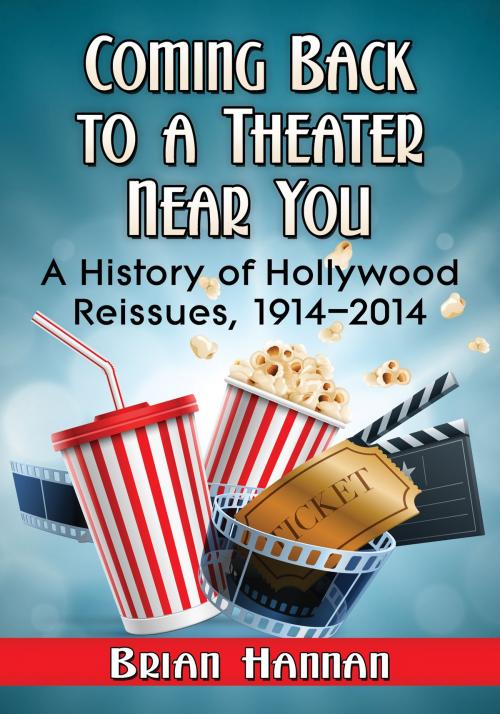Coming Back to a Theater Near You
A History of Hollywood Reissues, 1914-2014
Nonfiction, Entertainment, Performing Arts, Film, History| Author: | Brian Hannan | ISBN: | 9781476623894 |
| Publisher: | McFarland & Company, Inc., Publishers | Publication: | June 5, 2016 |
| Imprint: | Language: | English |
| Author: | Brian Hannan |
| ISBN: | 9781476623894 |
| Publisher: | McFarland & Company, Inc., Publishers |
| Publication: | June 5, 2016 |
| Imprint: | |
| Language: | English |
In the Silent Era, film reissues were a battle between rival studios—every Mary Pickford new release in 1914 was met with a Pickford re-release. For 50 years after the Silent Era, reissues were a battle between the studios, who considered old movies “found money,” and cinema owners, who often saw audiences reject former box office hits. In the mid–1960s, the return of The Bridge on the River Kwai (1957)—the second biggest reissue of all time—altered industry perceptions, and James Bond double features pushed the revival market to new heights. In the digital age, reissues have continued to confound the critics. This is the untold hundred-year story of how old movies saved new Hollywood. Covering the booms and busts of a recycling business that became its own industry, the author describes how the likes of Charlie Chaplin, Humphrey Bogart and Alfred Hitchcock won over new generations of audiences, and explores the lasting appeal of films like Napoléon (1927), Gone with the Wind (1939), The Rocky Horror Show (1975) and Blade Runner (1982).
In the Silent Era, film reissues were a battle between rival studios—every Mary Pickford new release in 1914 was met with a Pickford re-release. For 50 years after the Silent Era, reissues were a battle between the studios, who considered old movies “found money,” and cinema owners, who often saw audiences reject former box office hits. In the mid–1960s, the return of The Bridge on the River Kwai (1957)—the second biggest reissue of all time—altered industry perceptions, and James Bond double features pushed the revival market to new heights. In the digital age, reissues have continued to confound the critics. This is the untold hundred-year story of how old movies saved new Hollywood. Covering the booms and busts of a recycling business that became its own industry, the author describes how the likes of Charlie Chaplin, Humphrey Bogart and Alfred Hitchcock won over new generations of audiences, and explores the lasting appeal of films like Napoléon (1927), Gone with the Wind (1939), The Rocky Horror Show (1975) and Blade Runner (1982).















